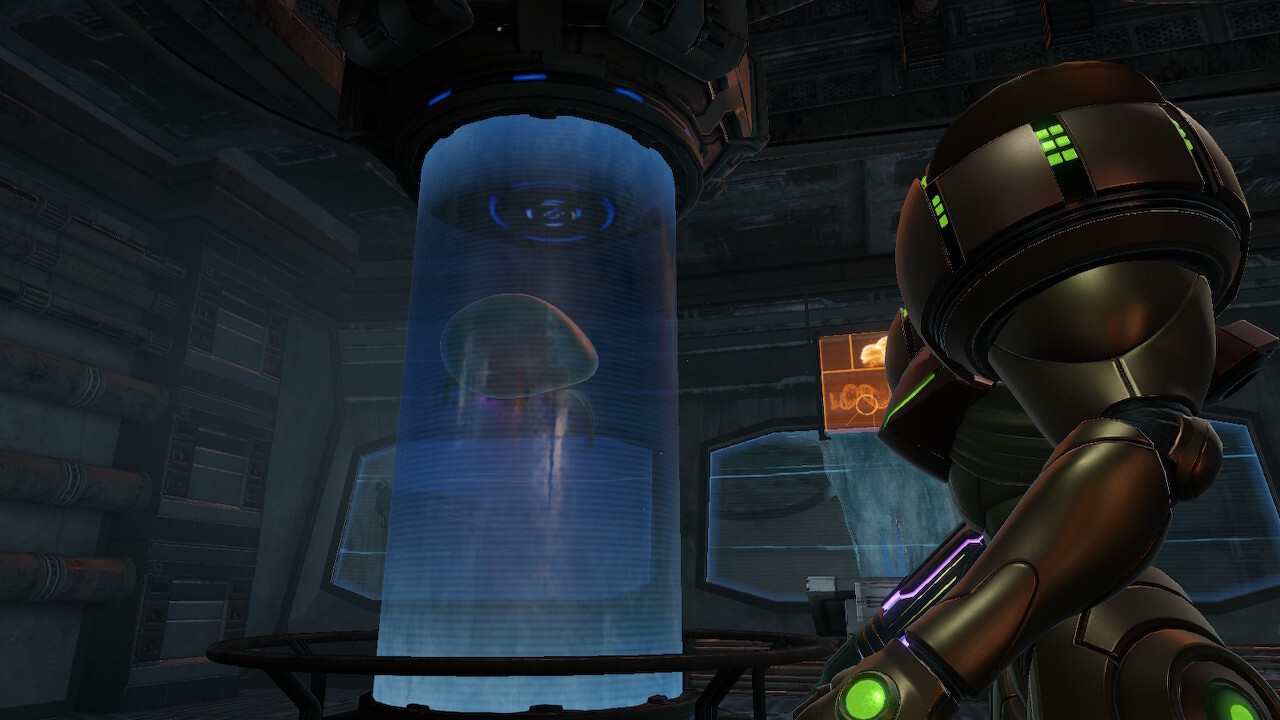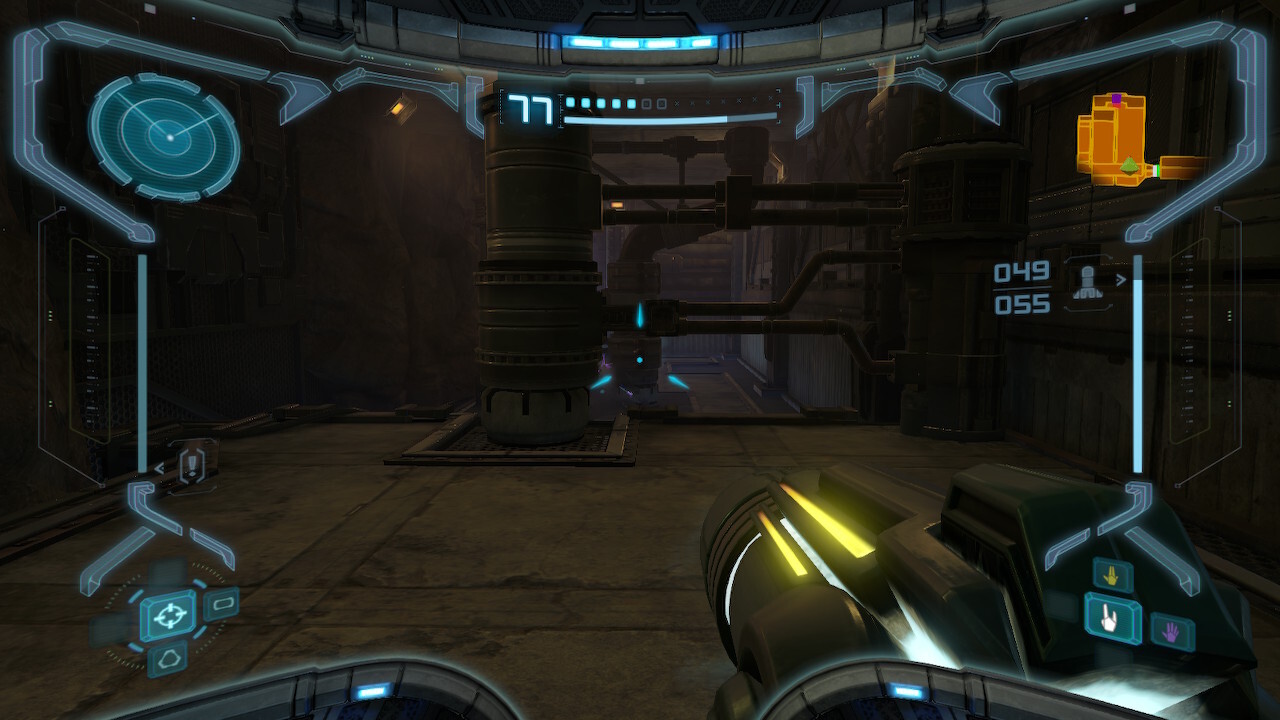Revisiting games you loved as a kid isn't always a pleasant homecoming. The nostalgia might propel you to the end, but it's always possible you'll set the controller down with the realization that one of your favorite games hasn't aged all that gracefully. Rather than being a truly timeless classic, it becomes more of a had-to-be-there experience that's maybe even been rendered somewhat obsolete by newer games that took everything you loved about it and made it better. Thankfully, Metroid Prime isn't one of those games.
Instead, Metroid Prime Remastered remains as fresh and inventive today as it did at launch. Despite releasing more than 20 years ago on GameCube, Metroid Prime still has a novel aura about it. Granted, every touchstone in gaming has been subject to imitations, iterative improvements, or spiritual successors. But to this day, I'd argue that not a single game has meaningfully restructured the foundation laid by the Metroid Prime series.
Certain similarities can be found in first-person immersive sims such as Prey and Dishonored. The interconnected 3D levels of Control, Star Wars Jedi: Fallen Order, and the Batman Arkham games have world designs that are somewhat Metroid Prime-like. And BioShock's underwater world of Rapture offers its own take on environmental storytelling inside a perilous world. But none of these games fit cleanly into the Metroid mold.
It's quite strange to think about, considering side-scrolling Metroid games were so influential that they helped spawn an entire genre based on their core gameplay loop. You can find the full DNA of Super Metroid in many, many games. And yet, the Metroid Prime series remains the sole mainstream example of this loop translated to 3D.

At first, it'd be tempting to correlate Metroid Prime Remastered's greatness with the quality-of-life improvements and HD visuals. There's no denying that implementing dual-analog-stick controls makes Metroid Prime control more like a modern first-person shooter. I even booted up the GameCube to compare and was unsurprised to find that the original version is, well, awkward--even more so than the "classic" control scheme on Switch due to the GameCube controller's peculiar layout. One thing that hasn't changed, though, is the beauty of the world. The remaster simply helps showcase the world with sharper textures, more vibrant colors, improved lighting and shadows, and crisper animations. The visual enhancements and revamped control scheme certainly make Metroid Prime more palatable in 2023, but the aspects that make the game so great were already present in the original.
Metroid Prime does take clear inspiration from an unsurprising place by carrying over the hallmark traits of its side-scrolling predecessors, namely an emphasis on backtracking to reach previously inaccessible areas with the help of new gadgets. Many, many games--especially 3D ones--devolve into tedium when requiring you to run through (without fast travel!) the same areas over and over. Metroid Prime never suffers from this sort of fatigue because of an extremely clever world-building philosophy.
If you pull up the 3D map and take a look around the various biomes, you will notice the sheer variety of rooms. In fact, you'd be hard-pressed to find any that feel uniform or cookie-cutter. They are represented on the map in many different shapes and often have uneven ceilings, false floors, hidden alcoves, and jagged edges that contrast the clean square boxes of Prime's 2D predecessors. With massive, multi-floor caverns, tight tunnels, and elevation changes galore, Metroid Prime's world is a labyrinth of zones, each of which contains its own stories while also serving as a smaller piece of a much larger puzzle. Suffice to say, these areas stick with you, and this is crucial for training your mind to re-explore each area.
There's a subtlety to how the game guides you forward that can only be truly appreciated when you're about halfway through the adventure and you've regained a handful of the suit powers you lose during the intro. Though the game will cue you in on a point of interest after you meander around for a while without uncovering a new area, those who pay close attention to their surroundings will likely uncover these spots organically. Other Metroid games have also nudged you by dropping bread crumbs of knowledge, but Prime's ability to do it--20 years ago--is arguably more impressive due to its 3D world. It's astonishing that this design philosophy not only holds up today, but rivals some of the best games in recent years.

It's not just what you see through Samus' visor that makes an impact on how you move across Tallon IV; it's what you hear, too. Metroid games have always had memorable soundtracks, but Prime's represents the series at its best. The music always matches the tone of your surroundings, with tension-laced combat beats or ethereal synth melodies when exploring. Each biome has its own wildly varying themes that are intrinsically linked to the atmosphere generated while exploring. Once you uncover lore behind each ruined environment, you'll find that the score plays into the history around you in fulfilling ways.
The first-person perspective further plays into the entrancing atmosphere that's generated on Tallon IV. I've always loved how the series is quietly a superb offshoot of horror, and in no Metroid game is it more apparent than Prime. Viewing the world through Samus' visor cultivates a more heightened feeling of isolation than Prime's side-scrolling counterparts.
Calling it a first-person shooter would be a disservice and lead those who are expecting consistent action astray. Despite the cool suite of weapons it gives the player, an eclectic bunch of dangerous creatures inhabiting its world, and several standout boss fights, Metroid Prime isn't nearly as action-heavy as the average FPS or even other Metroid games. Instead, Prime leans more into the action-adventure genre with an emphasis on exploration. The main gameplay mechanic is scanning points of interest with Samus' high-tech visor. Its entire story is told via written lore that you gather by examining Tallon IV's desolate world through Samus' visor. The knowledge you gain allows you to find upgrades, which can then be used to access new areas to search for more information. It's a brilliant loop that's bolstered by a variety of platforming and combat sequences. But still, it's the thrill of discovery--the piece-by-piece worldbuilding--that really drives the adventure forward.
As someone who generally isn't a fan of games that make heavy use of audio logs and other collectibles to provide context to the world around you, it says a lot that Metroid Prime Remastered has compelled me to scour every nook and cranny for these tidbits of information all over again. This compulsion probably results from the less-is-more approach to its design. So much is deliberately held back from the player. You're not inundated with extraneous exposition--there's no dialogue to speak of--or told how to think or feel about the events unfolding on Tallon IV; you're simply experiencing this journey as a proper, unknowing explorer of a strange planet.
In this sense, Metroid Prime shows a lot of restraint by suggesting to the player that they take their time to absorb their surroundings. At face value, Prime looks like a conventional FPS, so it wouldn't be surprising to think about it that way going in. But using Samus' eclectic suite of powers to slay enemies is merely a small piece of the equation, whereas the vast majority of first-person shooters rely on constant action. Metroid Prime only gets away with this because its world design urges you to stop and survey your surroundings. That's where the magic lies.
I'm tempted to say Metroid Prime's genre is Metroid Prime. I believe it's the rare AAA game that doesn't have a single peer in terms of what it does and, more crucially, how it accomplishes what it sets out to do. It's an experience that has aged like fine wine, and is every bit as intoxicating now as it was 20 years ago.
Metroid Prime Remastered offers a reminder that revisiting beloved games many years later can enhance your appreciation. On rare occasions, the game is even better than you remember. Two decades after its original release, Metroid Prime Remastered demonstrates how special it was and still is today.












